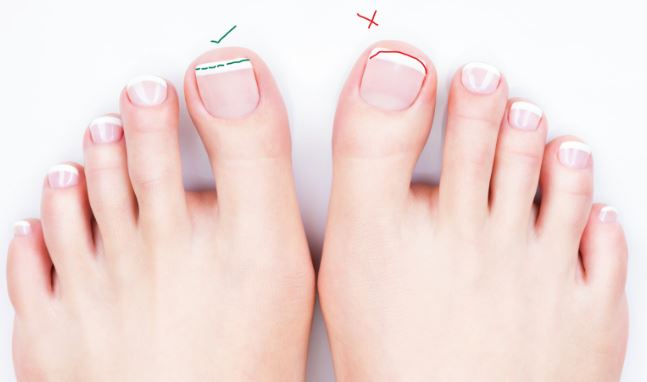How to prioritize self-care in a busy world | |

| |
In today's fast-paced and demanding world, prioritizing self-care is crucial for maintaining overall well-being and preventing burnout. Taking time to care for yourself physically, mentally, and emotionally can lead to increased productivity, better relationships, and a higher quality of life. In this article, we will explore effective strategies and tips on how to prioritize self-care in the midst of a busy lifestyle. Understanding the Importance of Self-CareSelf-care refers to the deliberate actions and practices that promote well-being and nurture one's own needs. It involves setting aside time and energy to engage in activities that recharge, rejuvenate, and restore balance. Here are a few reasons why self-care is essential:
Strategies for Prioritizing Self-CareHere are practical strategies and tips to help you prioritize self-care in a busy world: 1. Schedule Self-Care TimeTreat self-care activities as non-negotiable appointments with yourself. Block off specific time slots in your calendar dedicated solely to self-care. Whether it's a weekly yoga class, a relaxing bath, or a nature walk, make it a priority and commit to it. 2. Set BoundariesLearn to set clear boundaries and say "no" when necessary. It's okay to decline requests or delegate tasks when you feel overwhelmed. Protect your time and energy by prioritizing activities that align with your well-being. 3. Practice MindfulnessIncorporate mindfulness into your daily routine. Take a few minutes each day to focus on the present moment, engage in deep breathing exercises, or practice meditation. Mindfulness helps reduce stress, increase self-awareness, and promote a sense of calm. 4. Engage in Physical ActivityRegular physical activity is a powerful form of self-care. Find an exercise or movement practice that you enjoy, whether it's yoga, jogging, dancing, or swimming. Aim for at least 30 minutes of moderate-intensity exercise most days of the week. 5. Nourish Your Body with Nutritious FoodsA balanced diet plays a vital role in self-care. Prioritize nourishing your body with wholesome, nutrient-dense foods. Make mealtime a mindful experience by savoring each bite and choosing foods that support your overall health and well-being. 6. Disconnect from TechnologyTake regular breaks from technology to recharge and foster a sense of presence. Set boundaries around device usage, especially during designated self-care time. Disconnecting from screens allows you to fully engage in self-care activities and promotes mental relaxation. Frequently Asked Questions (FAQs)1. Is self-care selfish?No, self-care is not selfish. It is necessary for maintaining your well-being and allows you to show up as the best version of yourself in various aspects of life. Prioritizing self-care enables you to meet your own needs, which ultimately benefits both you and those around you. 2. What are some simple self-care activities?Simple self-care activities can include taking a leisurely walk, reading a book, practicing deep breathing exercises, journaling, listening to music, taking a power nap, or enjoying a hobby. These activities can be easily incorporated into your daily routine and provide moments of relaxation and rejuvenation. 3. How do I overcome guilt associated with self-care?Guilt can arise when prioritizing self-care, but it's important to remember that self-care is necessary for your well-being. Recognize that taking care of yourself enables you to better care for others. Reframe self-care as an essential part of maintaining a balanced and fulfilling life. 4. Can self-care be personalized?Yes, self-care is highly personal and should be tailored to your individual preferences and needs. What works for one person may not work for another. Experiment with different activities and practices to discover what brings you joy, relaxation, and rejuvenation. 5. How can I incorporate self-care into a busy schedule?Start by identifying small pockets of time throughout your day that can be dedicated to self-care. It can be as simple as taking a few minutes to engage in deep breathing exercises or going for a short walk during your lunch break. Look for opportunities to weave self-care into your existing routine. 6. Is self-care only for individuals experiencing high levels of stress?Self-care is beneficial for everyone, regardless of stress levels. It serves as a proactive measure to prevent burnout and promote overall well-being. Incorporating self-care practices into your daily life can help you maintain balance and resilience in the face of challenges. ConclusionPrioritizing self-care is an essential aspect of maintaining a healthy and balanced life. By implementing strategies such as scheduling self-care time, setting boundaries, practicing mindfulness, engaging in physical activity, nourishing your body with nutritious foods, and disconnecting from technology, you can create a sustainable self-care routine in the midst of a busy world. Remember, self-care is not a luxury but a necessity for your well-being and happiness. | |
| Category: Wellness | |
| Total comments: 0 | |
 |
| The Science Behind Hair Growth Cycles: Maximizing Hair Growth |
 |
| The Best Shampoos for Different Hair Types |
 |
| 10 Foods That Promote Hair Growth and Scalp Health |
 |
| The ultimate guide to accessorizing your outfits |
 |
| The Importance of Scalp Health for Overall Hair Growth |
 |
| Celebrity-inspired Makeup Looks: Recreating Iconic Styles |
 |
| How to Choose the Right Foundation for Your Skin Type |
 |
| How to trim your nails properly |
 |
| The Art of Perfecting Your Base Makeup |
